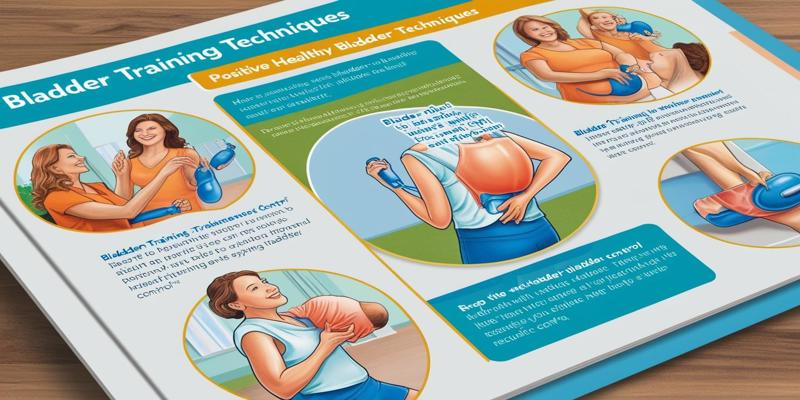Early illness diagnosis depends critically on screening tests, which also assist in saving lives by spotting health problems before they worsen. Conditions like cancer, diabetes, and heart disease are found in great part by tests including mammograms, colonoscopies, and blood tests. Though often life-saving, screening tests may not always be required indefinitely. Routine screenings may lose their advantages as people age or acquire chronic medical illnesses.
Unneeded examinations might cause stress, financial strains, and overtreatment. Knowing when to stop testing is crucial for maintaining quality of life and avoiding needless medical intervention. This article will discuss the elements to consider, the dangers of over-screening, and how best to decide when to stop these tests.

Why Are Screening Tests Important?
Screening tests aim to detect diseases early and help identify the most treatable ones. The goal is basic: identifying possible medical problems before they worsen. Frequent screenings help identify diseases, including heart disease, colon cancer, and breast cancer. Early discovery raises survival rates and makes therapy more successful. A mammography, for instance, can find breast cancer in relatively early stages.
Early colorectal cancer can be discovered via colonoscopies; it is frequently treatable if discovered early on. Still, not every person will find a screening suitable. Screening decisions rely on age, family history, and risk tolerance. Screens should ultimately be customized. Regular visits to healthcare professionals help you to ascertain which tests are required at every phase of life.
When Should You Consider Stopping Screenings?
Although they can save lives, screening tests might not always be helpful—especially as you age. Studies and policies indicate that certain individuals may experience needless interventions, worry, and health concerns by continuing particular testing. Regular mammograms, for instance, might not help women over 75 comparably; after age 85, colon cancer screening might not be required.
That is so because the hazards connected to these tests, such as false positives or treatment consequences, usually exceed the advantages. Furthermore, those suffering from terminal diseases or chronic disorders could decide to stop undergoing pointless screening tests. Discuss ceasing tests with your doctor when the chance of early discovery does not greatly enhance your quality of life.
The Risks of Over-Screening:
False positives, needless anxiety, and inappropriate medical treatments are just a few of the issues that over-screening could bring about. Like mammography, a false positive in screening tests could lead to unnecessary extra-invasive operations. Moreover, overdiagnosis might result from screening for diseases or tumors that are not likely to impact a person's health.
Over-screening also bears cost ramifications, particularly for elderly folks who may have inadequate healthcare coverage. The frequent requirement for tests can build up in terms of both cost and the emotional toll of false alarms. Especially as you age, it is crucial to weigh the advantages against the negatives of screening. Talking over over-screening concerns with a healthcare professional is a smart option.
How to Decide With Your Doctor?
Stopping screening tests shouldn't be done lightly, either. Discuss your screening history, present state of health, and general risk factors honestly with your doctor. Ask your doctor to review the benefits and drawbacks of continuing screening at your age. What could be advantages for you?
Early discovery won't influence the result or raise your life expectancy. If your family has a history of cancer or heart problems, your doctor may advise ongoing specific screenings. Your doctor will also consider your present quality of life, medication use, and general health, including chronic diseases. Their direction guides you on when to cut back on or discontinue screenings.

Screening Guidelines by Age
To assist people and healthcare professionals in deciding when to start or cease screening tests, health organizations have created screening policies for several age groups. Here is a broad framework of age-based advice:
- In Your 20s and 30s: Usually, at this age, screening emphasizes preventative health practices. Common are blood pressure checks, cholesterol tests, and skin inspections looking for melanoma. Women should start getting screened for cervical cancer at twenty-one.
- In Your 40s and 50s: Screening for diseases including diabetes, colon cancer, and breast cancer becomes more frequent at this point. Mammograms and colonoscopies are frequent recommendations during this time. Women might also begin yearly mammograms at forty years old.
- In Your 60s and Beyond: Those sixty years of age and above should concentrate on tests that affect quality of life. Colonoscopies may not be required for healthy people who show no symptoms. Depending on their general health and life expectancy, women over 75 may have their mammograms stopped.
Always ask your doctor about age-specific recommendations for your health background and present state.
Balancing Quality of Life and Screenings
The main objective of screenings is to enhance quality of life. Particularly for older adults, over-screening might cause needless treatments, anxiety, and unsatisfactory results. Managing current health problems and enhancing lifestyle choices such as maintaining a good diet, regular exercise, and reducing stress should take center stage.
Additional screenings might not be required for those with terminal diseases or major handicaps. They can thus give comfort and symptom control a top priority. Depending on the situation, doctors might advise palliative care rather than ongoing screening. Especially when early identification offers no apparent advantages, quality of life should always come first above ongoing testing. Make sure to have a comprehensive discussion with your doctor to prioritize your health goals.
Conclusion:
Early disease discovery and higher survival rates are made possible by screening tests. However, they do not always benefit everyone, especially as we age or experience unique health concerns. Stopping screenings at the right moment helps save undue stress, expenditures, and intrusive procedures. Balancing the benefits of early detection with the risks and your specific health goals. Consult your doctor to examine your circumstances and make informed decisions about necessary screenings. Giving quality of life a top priority and careful healthcare decisions guarantees continued wellness.











